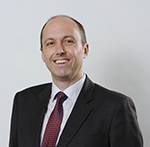By Robert Wallace, Partner, XPS Pensions Group
This culminated in the 21st Century Trusteeship campaign in 2017/2018, which set out TPR’s expectations of what good governance looks like. TPR’s research suggests that standards of trusteeship and governance have improved in recent years, although unsurprisingly smaller schemes tend to display weaker governance on average.
With this in mind TPR has launched a consultation setting out its aspirations for further reforming its standards on trusteeship and governance, with a focus on both addressing the risks of today and protecting members’ interests in the future.
Trustee knowledge and understanding, skills and ongoing learning
Under the Pensions Act 2004, trustees must have sufficient trustee knowledge and understanding (TKU) to exercise properly their function as trustees. The current code of practice is geared around achieving this via a broad TKU syllabus for trustees to check their knowledge against. TPR is considering moving away from this to more competency-based standards. A supervisory approach would mean trustees would increasingly be expected to demonstrate how they meet TKU requirements. This might involve TPR making more proactive contact with trustees.
TPR asks in the consultation whether there should be a legislative requirement to demonstrate a minimum level of TKU. This could involve relevant training or qualification, industry accreditation and/or introduction of a formal Continuing Professional Development (CPD) regime whereby a certain minimum level of training would need to be logged. TPR believes that pension boards benefit from having access to a range of diverse skills, points of view and expertise.
TPR recognises that such measures could discourage many from performing the trustee role and it is necessary to strike a balance between achieving the right standards and being able to find willing trustees.
Professional trustees
TPR has higher expectations of professional trustees and holds them to a higher standard than lay trustees. The new Professional Trustee Standards published in March, and the accreditation framework due to follow later this year, are designed to improve the quality of professional trustees and discourage poor practices in the market.
TPR believes that the vast majority of pensions schemes would benefit from appointing an accredited professional trustee to their pension board. TPR notes that currently 20% to 30% of schemes employ a professional trustee. It is seeking views on whether a professional trustee should be mandatory on all trustee boards in the future, noting that this might only be feasible once pension scheme numbers shrink.
TPR also notes increasing use of the sole trusteeship model, usually where a professional trustee firm acts as the only trustee for a scheme. Whilst this can be valuable in certain circumstances, TPR expresses concern about the potential loss of member representation and the ability to achieve robust decision-making in some cases.
Consolidation of DC pension schemes
TPR’s 2018 DC trust-based pension schemes research report findings show that a significant number of small DC schemes continue to lag behind in meeting key governance requirements. TPR views consolidation of schemes in the DC market as a way of closing the quality gap. It will assess this gap with targeted regulatory activity, with schemes that are unable or unwilling to improve their governance standards being given the opportunity to wind up their scheme and move members to a well-run alternative. It believes that it would be good practice for trustees to consider whether they should consolidate on an annual basis.
TPR notes that it has confidence in the ability of master trusts to deliver and maintain high standards of governance, particularly given the authorisation regime. TPR recognises that some schemes have barriers to consolidation such as guarantees and wants to work with the industry to find solutions to wind up such arrangements without detriment to the members.
Conclusion
Whilst governance is a fundamental part of a well-run pension scheme, it is an area that can often be overlooked for matters than can be seen to be more pressing or exciting. However, there is a natural conflict between TPR’s wish to raise the bar for trustees and encouraging more diverse trustee boards. A pragmatic balance needs to be struck, with trustees being encouraged to devote more time to governance matters and to reflect on how they are operating.
|


